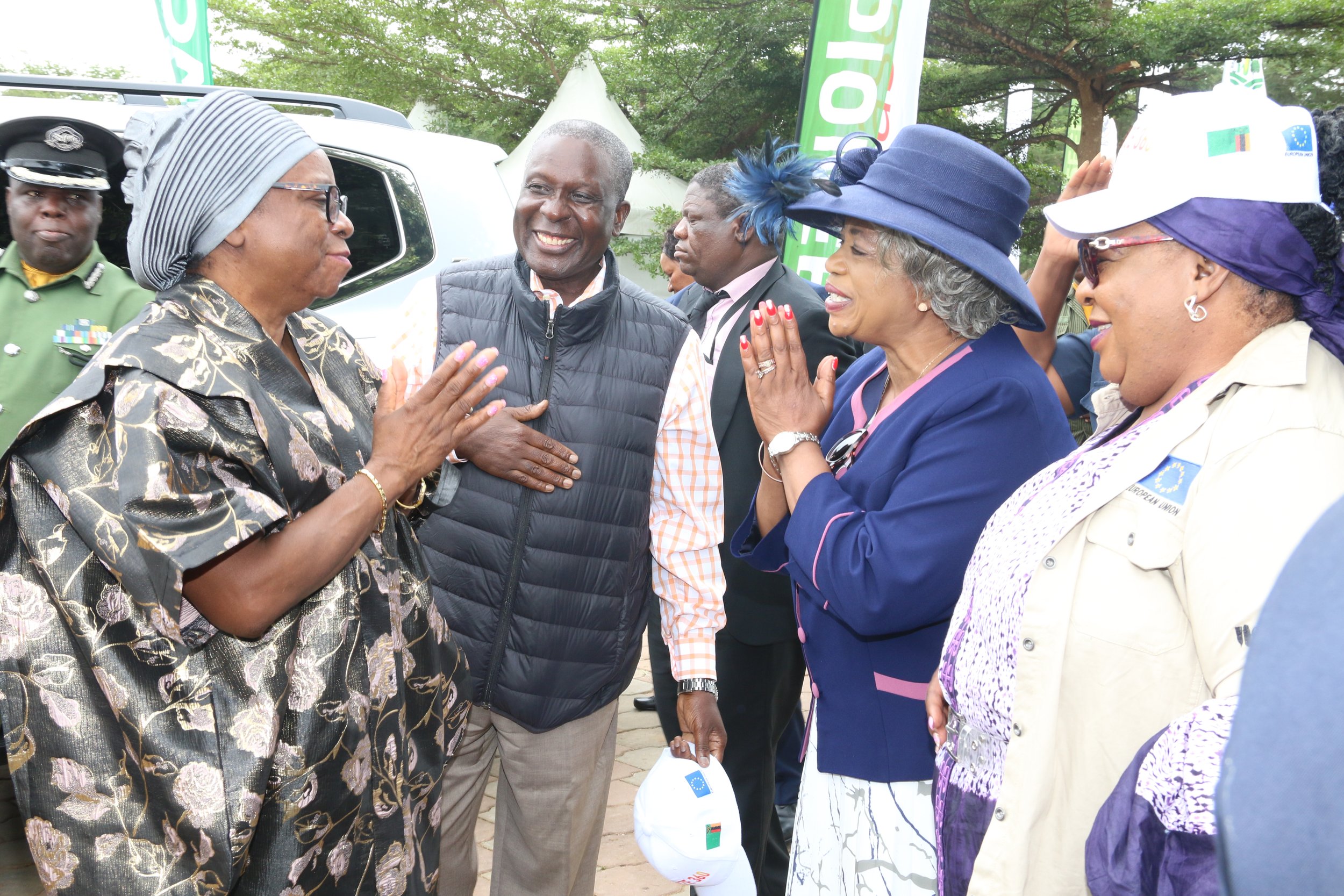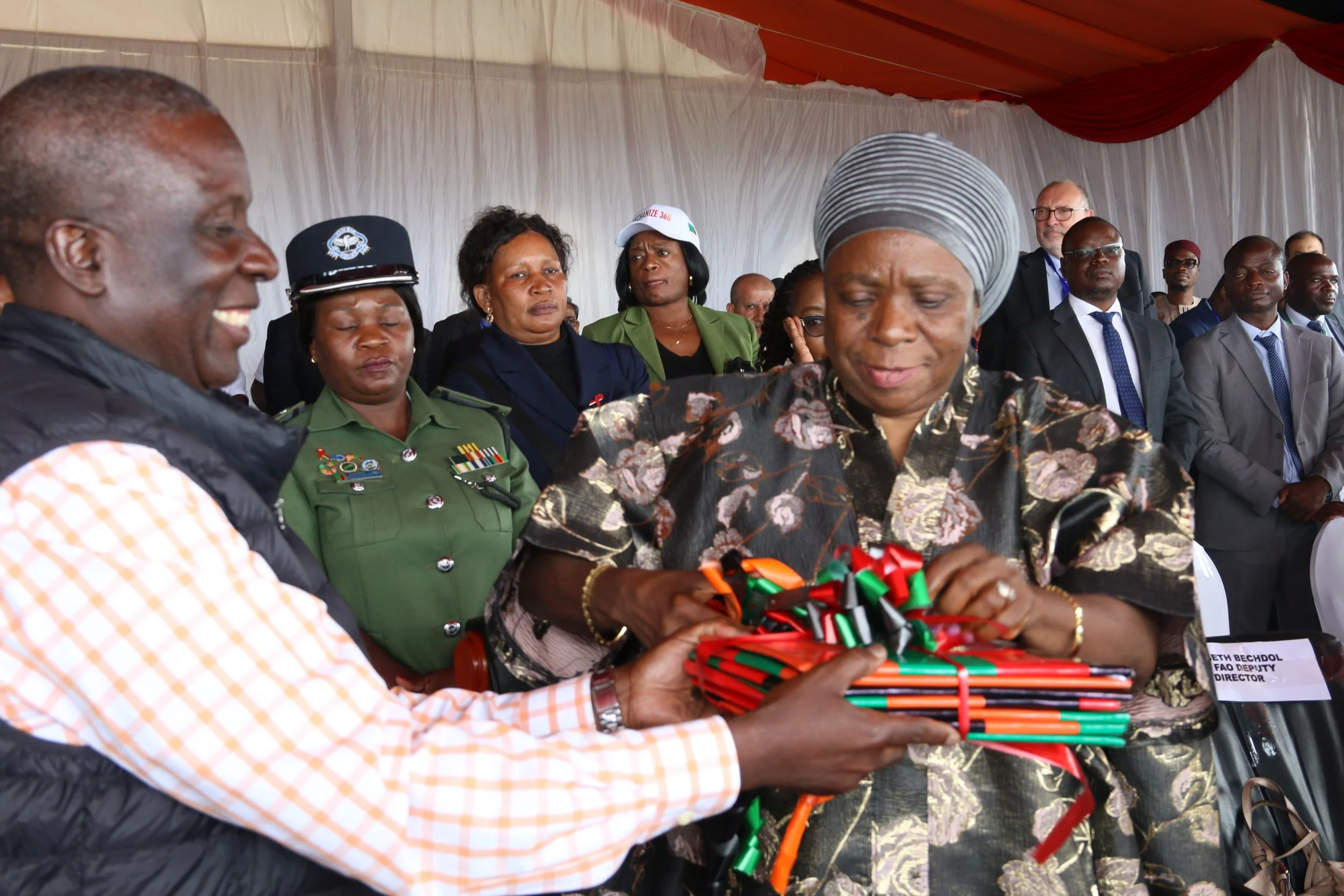VP Unveils National Agricultural Mechanisation Strategy
On Thursday 29 February, Vice President Mutale Nalumango launched the National Agricultural Mechanisation Strategy (NAMS) at the National Resources Development College in Lusaka. The strategy promotes efficiency, productivity, and sustainability among small-scale farming practices within Zambia and is set to be revolutionary for the sector.
Vice President Mutale Nalumango at the launch of the National Agricultural Mechanisation Strategy (NAMS) in Lusaka
NAMS is the result of combining local knowledge from Zambian universities, farmers, and the private sector, along with expertise from foreign groups such as the European Union, the United Nations’ Food and Agriculture Organisation, and the International Maize and Wheat Improvement Centre.
As a first point of business, the strategy will primarily focus on implementing the Comprehensive Agricultural Transformation Support Programme (CATSP).
Overall, CATSP will aim to make the agricultural sector a viable commercial sector focusing on activities to increase production and productivity in crops, livestock, and fisheries. Specifically, the programme aims to increase maize production to 10 million metric tonnes as well as increasing wheat and soya production by 1 million metric tonnes respectively.
To achieve this, CATSP outlines 25 interventions in the sector which each contain their own plans and policy instruments to achieve them. Highlights of these include restructuring agricultural expenditure; public-private sector partnerships; targeted agricultural investments; and the development of national agribusiness.
At the heart of the programme is empowering smallholder farmer engagement and ensuring farmers are well-equipped to meet these goals. In order to do this, the programme is founded on four key principles.
The first principle focuses on increasing the number of farmers within Zambia to ensure that the country’s demand for agricultural goods is met. Following this, government will ensure that farmers have access to the right tools and technology to ensure efficient production.
Relatedly, CATSP will also equip farmers with the ability to efficiently cultivate crops, livestock, and fish through targeted breeding programmes. It will also aim to reduce manual labour in the sector by ensuring that modern agricultural technology is accessible and available to farmers.
The third principle is founded on partnerships within the private sector to foster collaboration and drive participation within the industry.
Finally, CATSP emphasises the need for environmentally sustainable agricultural interventions to ensure Zambian farmland is protected for future generations whilst safeguarding and improving practices today.
In order to achieve these high-reaching goals, the government has already implemented its first action step: Mechanise 360 Ulimi Okwana.
Mechanise 360 Ulimi Okwana will see the modernisation of half a million hectares of smallholder farmland by 2027.
Overseen by the newly established National Agricultural Mechanisation Steering Committee, the project will set up six regional level mechanisation centres of excellence.
In order to access finance, Mechanise 360 Ulimi Okwana will expand the newly introduced sustainable agricultural financing facility and credit window to support funding for equipment, livestock, and fisheries. This will also be backed by private sector supporters and investors.
This programme will be further highlighted at the 2024 National Agriculture Show, which will be geared towards the targeted smallholder farmers through the Smallholder Farmers Agricultural Mechanisation Forum.
The Forum will bring together local and international investors, private sector suppliers, key agricultural stakeholders from academia to farmer representatives to identify key opportunities in local equipment manufacturing.
The implementation of Mechanise 360 Ulimi Okwana via CATSP outlines key steps being taken by the New Dawn government to meet the current needs within the agriculture sector and delivering modernisation and the empowerment of smallholder farmers within Zambia.
Food security is a priority intervention for the President and the Presidential Delivery Unit (PDU), with the aim to produce 1 million tonnes of wheat and soybeans and 10 million tonnes of maize annually by 2027.
PDU therefore supports the implementation of NAMS to lift Zambians out of hunger today and protect agricultural sustainability for future generations.


